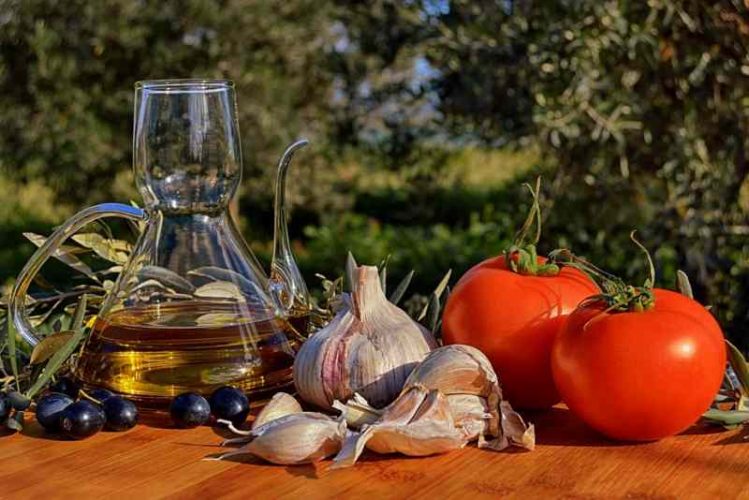Cooking oils extracted from several oilseed crops are an important source of human nutrition. They are rich in saturated and unsaturated fatty acids, antioxidants, and several other fat-soluble vitamins. Therefore, these oils are widely used for cooking and processing in the food industry.
Do cooking oils contain pesticide residues?
Synthetic pesticides are widely used to protect oilseed crops from insect pests and diseases. Due to the regular use, synthetic pesticides leave behind traces of pesticides in the oilseed crops and processed oils. A very small quantity of pesticides can persist in the cooking oils which are called “residue”. But keep in mind this trace quantity is not toxic.
What is MRL and how is it set up?
European Union (EU), Codex Alimentarius Commission, and Food and Agriculture Organization (FAO) have set up the maximum residue levels (MRL) for the pesticides being sprayed on the oilseed crops. MRL is the maximum allowable quantity of a pesticide on any crop, that will not be a concern to human health.
There has always been a great debate and controversy on how these residue levels are set up. Setting up MRL and the recommended doses of pesticides is a highly regulated process, and strictly aims at the health safety of consumers. The standards which are set up for pesticide use and residue level are always tested for their health and environmental safety.
Pesticide residues deplete over time
The trace residues remaining on the crops after harvest will generally deplete over time. The good thing is, conventional cooking oil is safe for consumption as long as the pesticide residue level doesn’t exceed the MRL.
The amount of pesticide residues in edible oils is further reduced after processing and packaging. Most of the edible oils which come in the market after processing are generally tested for residue level.
Good agricultural practices can reduce the risk of pesticide residues
In case, when the growers don’t follow good agricultural practices (GAP), they may end up leaving behind pesticide residues above the MRL. Generally, when the pesticide residues exceed the MRL, the edible oil is rendered unfit for consumption. The long-term and frequent consumption of such cooking oils that contain high pesticide residues can pose significant health risks.
So, it is right to say that good agricultural practices and using a recommended dose of pesticides can help to reduce the risk of pesticide residues in edible oils. If your food is grown following the standard protocols of GAP, you are in safe hands.
Is it safe to consume a cooking oil that contains pesticide residues?
Pesticides are toxic and can harm not only the pests at which they are targeted but also the consumers of such products. If the residues in cooking oil don’t exceed the maximum residue levels (MRL) then it is considered safe for consumption.
But how safe is it really to consume oils that contain residues of plants and insecticides? That’s a difficult question to answer…. because it should be noted that behind the so-called maximum residue levels (MRL) there are also economic interests…

What are the health risks of consuming edible oils with high pesticide residues?
Pesticides are poisonous and can damage your health, after direct or indirect exposure. The long-term consumption of edible oils which contain pesticide residues can cause several health effects. These health risks include a range of serious diseases, respiratory issues, and cancer.
There are generally two types of pesticide poisonings commonly observed.
Acute pesticide poisoning
Acute pesticide poisoning occurs when the pesticide causes harm to human health after a single episode of consuming such edible oils which contain high pesticide residues. Acute poisoning is common when the food commodity contains a high quantity of synthetic pesticide residues.
The symptoms of acute poisoning will start to appear shortly after consumption and can worsen within 48 hours. A person can experience any of the following symptoms.
1. Irritation in nose, throat, and respiratory tract
2. Sore throat or excessive coughing
3. Vomiting, nausea, dizziness, and diarrhea
4. Allergic reaction
5. Skin and eye irritation
6. Mild to severe headache and loss of consciousness
7. Weakness, Fatigue, seizures, and death in some cases
People with breathing problems or asthma can show a serious reaction to pyrethroid, carbamate, and organophosphate pesticide residues in cooking oils.
Chronic pesticide poisoning
Chronic pesticide poisoning can be more common where you experience harmful effects over an extended period. It is usually observed when consumers are repeatedly and continuously exposed to low levels of pesticides. For example, if you are consuming edible oils contaminated with high pesticide residues regularly, you can experience long-term toxicity.
A low dose of pesticides doesn’t show immediate effects, but with time it can develop a serious health problem. Long-term pesticide consumption can result in any of the following:
1. Asthma
2. Depression
3. Anxiety
4. Parkinson’s disease
5. Lack of attention
6. Hyperactivity disorder
7. Cancer (leukemia and non-Hodgkin’s lymphoma)
8. Reproductive issues (Birth defects, sterility, abortion)
In most of cases, the symptoms of pesticide toxicity resemble cold or flu. Since pesticide toxicity resembles other diseases, it can be often go misdiagnosed and remain unreported. The immediate reaction of a pesticide may not be severe enough to seek medical advice and the doctor might not be able to guess if the disease is due to pesticide consumption or exposure.
Why organic cooking oils are preferred over conventional oil?
Health is always a top priority for most of us. With the growing world, people are more concerned about what they eat or drink. The health risks of synthetic pesticides have compelled them to buy more and more organic food products. The popularity of organic food has grown so much in the past several years. More and more Americans are now adding organic food to their daily diet. They are even ready to pay more to buy organic food products. So, this is one of the reasons people prefer buying organic cooking oils over conventional cooking oils.
It is a fact that conventional cooking oils have more pesticide residues than organic ones. But it doesn’t mean that organic cooking oils are free from pesticide residues. Organic cooking oils may also contain pesticide residue but not synthetic ones. Moreover, the pesticide residues in organic edible oils will be lower than in conventional edible oils. This is one good reason to prefer organic cooking oil over conventional cooking oils.

Takeaway message
FAO and the EU have been tirelessly working on setting up MRLs to ensure consumer’s health safety. Therefore, conventional cooking oils produced after following good agriculture practices are safe with no potential health hazards. At least that is what the regulatory and supervisory authorities of the food industry and government agencies tell us.
How credible all this is can be questioned because of the strong lobbyism and many industry-friendly decisions. Many long-term effects are not yet foreseeable. If you really want to be on the safe side, you may be better off choosing organically produced foods that come from certified organic farms.
More to read:
WHO on Pesticide residues in food: who.int/…. pesticide-residues-in-food
Effect of handling and processing on pesticide residues in food: ncbi.nlm.nih.gov/pmc/articles/PMC3907644/

